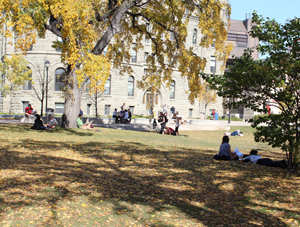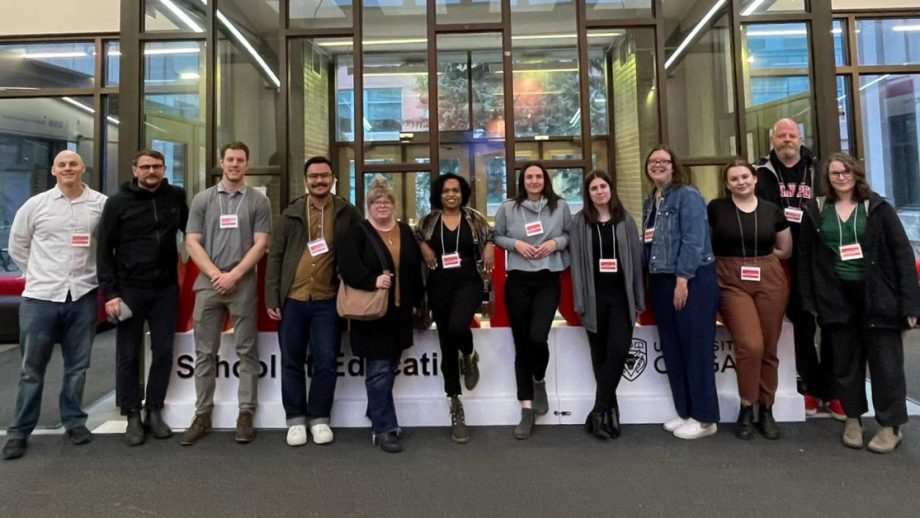WINNIPEG, MB – The University of Winnipeg is going pesticide-free by spring 2013, the first campus in Manitoba to make that commitment towards a healthier and more sustainable landscaping practices.
“Research taking place at UWinnipeg increasingly suggests that pesticides used on lawns and gardens pose needless risk to people, pets and the environment – including Lake Winnipeg. Dr. Bill Buhay (Geography) is involved in research about the impact of substances such as cosmetic pesticides on Lake Winnipeg. It is telling that based on this research, Dr. Buhay endorses the banning of cosmetic pesticides in Manitoba,” said Dr. Lloyd Axworthy, President and Vice-Chancellor. ”Dr. Eva Pip, a long-time member of our department of Biology and an expert on pesticides and water quality, has also expressed her support for such a ban. The scientific research taking place at UWinnipeg confirms that pesticides cause harm to sensitive ecosystems and contamination from pesticide residues puts our waterways at risk.”
The elimination of cosmetic pesticides is consistent with UWinnipeg’s Campus Sustainability Policy and Healthy Campus Initiative which is currently in development. It also builds on other important action-oriented practices adopted at UWinnipeg to protect the health of our lakes, and improve the quality of life for students and the surrounding community. Recent initiatives include:
Eco-friendly initiatives on UWinnipeg campus
-
Introduced phosphate-free detergents and environmentally friendly cleaning products for use on campus
-
Became the first University in Canada to ban the sale of water, eliminating tens of thousands of plastic bottles, an initiative led by students that spread to quickly across the country
-
Introduced double-sided printing as default on all copiers and printers on campus
-
Installed a hybrid heating system that will enable the University to replace higher-emitting natural gas with lower-emitting hydro electricity during off-peak times
-
Partnered with the Forks Renewal Corporation (fall 2011) to send all campus food scraps, containers and cutlery to the Forks to be turned into compost for landscaping, allowing for a neighbourhood-level solution to waste management
-
Undergoing a major water retrofit project so all bathrooms on campus will have low-flow toilets and sinks
-
Opened the UWSA Bike Lab to promote active and sustainable transit options for students, staff and the surrounding community. The Bike Lab offers free year-round programming including bike maintenance and safety workshops
-
Following an in-depth LEED certification process by the Canada Green Building Council, both McFeetors Hall: Great-West Life Student Residence and The University of Winnipeg Students’ Association Daycare Centre joined an elite group of eco-friendly buildings in Manitoba by achieving Silver LEED status (November 2011)
MEDIA CONTACT
Diane Poulin, Communications Officer, The University of Winnipeg
P: 204.988.7135, E: d.poulin@uwinnipeg.ca





